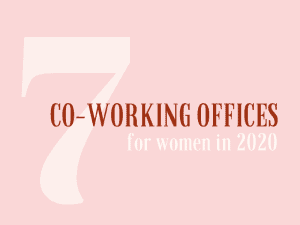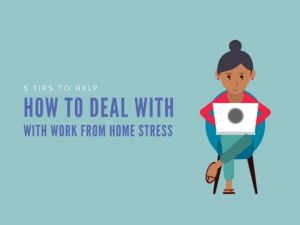How and When to Go to HR

Some people struggle with knowing when to go to HR. How far does a problem need to escalate before it warrants intervention from the human resources department? And how does it all work? When someone files a complaint, what happens next?
Here are some basic guidelines on how and when you should go to HR.
When to Go to HR About a Coworker
So you have a bit of friction between you and a coworker. How do you figure out when to go to HR?
HR isn’t just there to deal with the big problems like harassment or discrimination. They’re there to help everyone have a healthy, productive work environment. And sometimes it’s easier to tackle problems when they’re small. It’s beneficial to give HR the opportunity to nip a problem in the bud rather than letting a toxic situation fester.
However, if it’s possible to address a problem 1 on 1 with your coworker, try to go this route first. Give them the chance to correct themselves before involving another department. They may not even know they’re doing something that bothers you.
Give this attempt at a solution a paper trail. Even if it’s as simple as sending a Slack message that you want to have a chat, this will prove to HR in the future that you attempted to come to a solution with them first.
Some problems warrant an immediate conversation with HR. Here are some of those situations:
- Sexual harassment. If you’re experiencing any type of sexual harassment, whether it’s physical or verbal, you need to contact HR. Even if you don’t feel like it was “that bad” or “you don’t want to cause a problem,” you likely aren’t the only person they’re harassing. Speak up before they get the opportunity to attack others.
- Discrimination. Whether you experience discrimination based on your sex, race, gender identity, sexuality, age, medical history, or anything else, you need to work with HR to find a solution. These instances need to be reported and documented.
- Any violation of federal law. As a worker, you’re entitled to certain rights. For example, eligible employees are protected under the Family and Medical Leave Act. If an employer tries to terminate you during this leave, that violates your rights as a worker, and you’ll need to work with HR.
When to Go to HR About Your Boss
While handling a conflict between you and a coworker can feel uncomfortable, a conflict between you and a superior can get messy. They come at the situation from a position of power, making the path to a solution imbalanced. It’s hard to freely speak your mind if you feel you’ll experience consequences from a superior for doing so.
If you think it’s something your boss could be open to discussing and changing on their own, talk with them first. You don’t want them to feel blindsided by the situation when HR contacts them. If possible, give them the opportunity to correct the issue.
However, if you’ve talked with them and nothing has changed, you want to speak anonymously, or you need to directly seek mediation, it’s time to talk with your HR representative.
How to Go to HR
So you’ve decided that going to HR is your best option to resolve the solution. How do you do it?
First, book a meeting. Don’t just pop in and ask to have a serious conversation. For one thing, you want them to be prepared to give you the time you deserve to be heard. Secondly, you want to have documentation that this meeting took place. Whether you get it on the calendar or have an email chain that confirms the meeting, you want to have a paper trail.
Second, prepare your documentation. Giving the HR department tangible evidence of the indiscretions will make their jobs a lot easier. If you experienced microaggressions, write down when they occurred, what the person said, and who else was in the room. If your boss gives you too large a workload, document on your timesheet how long each task takes you and how much overtime you’re working. Regardless of the issue, handing over the paper trail to HR gives them a better opportunity to correct the situation.
Third, have an idea of what you want to happen. What do you want HR to do about the situation? Send a notice about employee behavior to the office? Put rules in place to better protect people from these situations in the future? Reprimand the perpetrator? Terminate someone? Conduct an investigation? Figure out what you want HR to do about the problem so you can properly communicate your goals. If you aren’t sure what your options are, talk with them about what they can do. Once you’re on the same page of what the end goal looks like, you’ll both know what to do to work towards that goal.
Fourth, stay in touch with the HR representative you worked with. Make sure you’re cooperating if they need anything from you. A lot of HR work happens behind the scenes, so it might seem like they aren’t making progress. Feel free to check-in and get updates.
If you feel like your needs aren’t being met, or your claim wasn’t taken seriously, talk to someone else in the department. People aren’t perfect, and an HR representative can let you down.
HR Is There to Help
Many people admit that they fear going to HR as they think reporting to HR could backfire on them. Maybe they feel like their problem isn’t big enough for HR. Perhaps they think that the problem is so big that HR won’t do anything to fix it.
An HR representative’s job is to help the company function in a healthy, productive way. Workplace friction takes away from your ability to focus on your job. They want to help you find a solution so that you can go back to work feeling supported and confident.
If you decide when to go to HR and they don’t do what they can to help you, you have to wonder if this is the company for you. You deserve to work for a business that puts your best interests at heart. If HR is just a flimsy department used to protect the higher-ups and corporate interests at any expense, then it’s time to find a healthier work environment.
Author, Artist, Photographer.
Sarah Margaret is an artist who expresses her love for feminism, equality, and justice through a variety of mediums: photography, filmmaking, poetry, illustration, song, acting, and of course, writing.
She owns Still Poetry Photography, a company that showcases her passion for capturing poetic moments in time. Instead of poetry in motion, she captures visual poetry in fractions of a second, making cherished keepsakes of unforgettable moments.
She is the artist behind the Still Poetry Etsy shop, which houses her illustrations and bespoke, handmade items. She is the author of intricacies are just cracks in the wall, a narrative poetry anthology that follows a young woman discovering herself as she emerges from an abusive relationship.






Responses